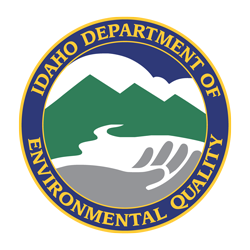Author: Tara Kleffner
Coeur d’Alene Lake Comprehensive Coring Project
DEQ awards $610,000 to Murray Water Association
February 20, 2025
Contact: MaryAnna Peavey, Grants and Loans Bureau Chief, MaryAnna.Peavey@deq.idaho.gov
BOISE – The Idaho Department of Environmental Quality (DEQ) today awarded $610,000 in drinking water construction funding to Murray Water Association in Shoshone County, Idaho.
The funding will be used to improve drinking water storage capacity, including adding a generator, transmission lines from source wells, a storage tank, and a booster station.
DEQ is authorized by state law to make loans to assist in the construction of public drinking water systems. Since the annual cost of drinking water service for residential customers exceeds 1.5% of the median household income, Murray Water Association qualifies for a disadvantaged loan, which carries favorable repayment terms.
The loan from DEQ’s State Revolving Loan Fund, which is capitalized annually by grants from the United States Environmental Protection Agency, has $610,000 in principal forgiveness. The favorable loan terms represent $1,060,569 in savings to the community when compared to average costs for municipal general obligation debt issuances.

